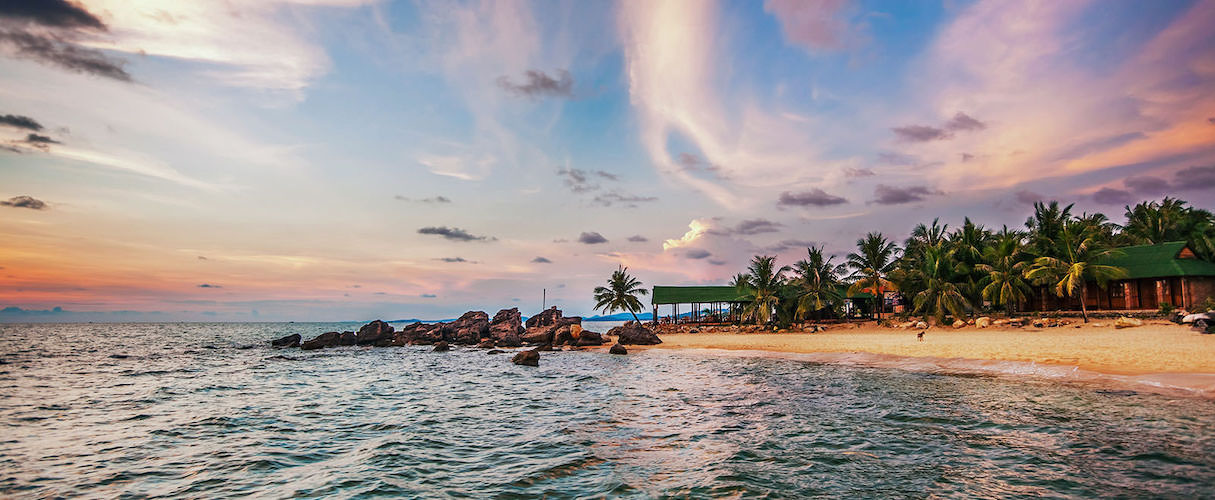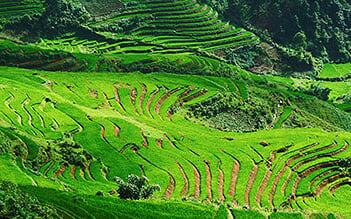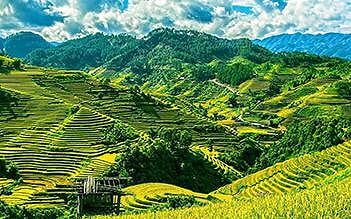Overview
Phu Quoc, also known as Dao Ngoc, is the largest island in Vietnam as well as the largest of the 22 islands here. The place located in the Gulf of Thailand. Phu Quoc Island together with other islands constitute Phu Quoc island district directly under Kien Giang province.
The whole island district has a total area of 589.23 km² according to the land statistics in 2005, and approximately the area of the island nation of Singapore in the 1960s without leveling the sea. Duong Dong town, located in the west, is the capital of the island district. Phu Quoc is located 120 km from Rach Gia city and 45 km from Ha Tien city. In 2006, Kien Giang coastal and marine biosphere reserve includes this district, which is recognized by UNESCO as a world biosphere reserve. By July 2011, 74 projects were granted investment certificates in Phu Quoc, with a total investment of 48,087 billion VND.
1/ Natural location
Phu Quoc Island is located in the Gulf of Thailand, southwest of Vietnam, Phu Quoc stretches from latitude: 9 ° 53′ to 10 ° 28′ north latitude and longitude: 103 ° 49′ to 104 ° 05 ° winter.
2/ Terrain - geology
Phu Quoc has 22 large and small islands of which the largest Phu Quoc island has an area of 567 km² (56,700 ha), 49 km long. The gentle natural terrain runs from north to south with 99 hills and mountains. However, the small island cluster of An Thoi port is completely separated from the southern tip of Phu Quoc island by a strait with a depth of more than 60 m.
Phu Quoc Island is composed of Mesozoi and Cenozoic sedimentary rocks including multi-origin conglomerate, quartz pebbles, silica, limestone, riolite and felsite. Mesozoic rocks belong Phu Quoc formation (K pq). Cenozoic deposits belong to Long Toan formation (Middle Pleistocene - upper), Long Mỹ formation (Upper Pleistocene), Hậu Giang formation (lower - middle Holocene), upper Holocene sediments and Quaternary sediments do not divide.
3/ Climate
The climate of Phu Quoc is cool weather which affect tropical monsoon. The climate is divided into two distinct seasons.
Dry season: Phu Quoc Island is influenced by northeast monsoon. The highest temperature is 35 degrees Celsius in April and May.
Rainy season: Phu Quoc Island is the gateway to the West - Southwest monsoon, high humidity from 85 to 90%.
4/ Residential
Before 1975, the island's population was just over 5000 people. After 1975, the island's population increased rapidly due to migration. By 2015, according to statistics of Kien Giang province, the inhabitants of the island had reached 101,407 people with an average density of 172 people / km².
Major residential areas:
• Duong Dong town
• An Thoi town
• Ham Ninh fishing village
• Cua Can fishing village
• Hon Thom island commune
Currently, in Phu Quoc island district, a number of new urban areas in the urban area of InterContinental Phu Quoc and Bac Duong Dong urban area have been formed.





